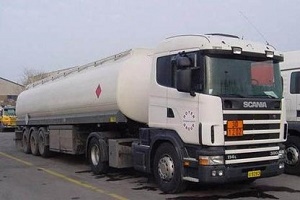
Far too many accidents involving the transport of dangerous goods still occur in countries all around the world. Recent incidents among the dozens recorded every month include the explosion last week of an overturned petrol tanker in Niamey, Niger, that killed 58 people, seriously burning close to 40 more, or the 2017 fuel tanker blast in Pakistan that claimed over 200 lives.
Fortunately, solutions exist to reduce these risks: the European Agreement concerning the International Transport of Dangerous Goods by Road (ADR) is a tried and tested United Nations instrument that for over 50 years has helped to prevent such accidents and reduce the severity of their consequences. Incidents involving ADR vehicles carrying dangerous goods often result in no or minimum spillage, no people injured and even in many cases no significant damage to the cargo, people or the environment. On the contrary, accidents involving vehicles not complying with ADR requirements often have catastrophic consequences, as the examples above tragically illustrate.
ADR covers both the packaging and labelling of dangerous goods, and the construction, equipment and operation of the vehicle carrying them. As the key reference for transporters carrying dangerous goods within the Agreement’s 51 Contracting Parties, ADR also helps to ensure swift and effective emergency response in the event of an accident. For instance, fire brigades can quickly identify the type of goods being transported and take the most appropriate action thanks to the vehicles’ ADR orange plates and markings. ADR’s comprehensive provisions also cover restrictions on the transport of dangerous goods through tunnels or populated areas.
Adopted at UNECE in 1957 as a European agreement, ADR is a highly successful example of the positive impact of international harmonization and cooperation on improving safety. In addition to countries of the Pan-European region, Morocco, Tunisia and most recently Nigeria have joined ADR, signalling increasing global demand for solutions for the safe transport of dangerous goods. Other countries including Pakistan, Qatar, Jordan and Lebanon have expressed interest in acceding. Some countries like Thailand are integrating the ADR provisions, either fully or partially, in their national regulations.
Yet while ADR has been open to accession by all United Nations Member States since its entry into force in 1968, the “European” title of the agreement has proven to be a barrier to joining ADR for parliaments and legislative bodies in a number of countries.
For this reason, Contracting Parties to the Agreement have today adopted a Protocol to amend the title of ADR to the “Agreement concerning the International Transport of Dangerous Goods by Road”, removing the “European” prefix.
UNECE Executive Secretary Olga Algayerova welcomed the decision, stating “Building on the achievements of ADR over the last five decades in improving safety for the transport of dangerous goods, more and more countries are looking to harness its practical value. As a global agreement, I encourage all United Nations Member States to join and fully implement ADR, supporting progress towards road safety targets of the Sustainable Development Goals. UNECE stands ready to support countries in this process”.
ADR facilitates the international transport and trade of a wide range of products of economic importance, including petroleum products, gases, industrial chemicals, agrochemicals and fertilizers. ADR’s provisions are constantly updated in response to current needs, for example to ensure safe transport for the growing use, recycling or disposal of batteries and fuel cells. Dangerous goods covered by ADR also include infectious materials such as blood samples, clinical waste and animal carcasses.
In addition to the provisions to increase safety, ADR also includes provisions addressing other aspects, notably security (to minimise theft or misuse of dangerous goods in a terrorist event) and protection of the environment (to prevent leakages/spillages that could lead to the release of hazardous chemicals to the air, soil, and water).
The change in title for ADR is the result of several years of negotiation by international experts in the transport of dangerous goods under the auspices of UNECE’s Inland Transport Committee. The decision was made at this week’s Conference of the Contracting Parties to ADR, taking place concurrently with the 106th session of the Working Party on the Transport of Dangerous Goods, held in the Palais des Nations, Geneva.
The change in title of ADR will enter into force on 1 January 2021, provided that no objection from a Contracting Party has been expressed within a 6-month period following notification by the UN Secretary-General to all Parties.
Note to editors
About the ADR
ADR is among the 6 key UN international legal instruments serviced by UNECE that create a legal framework addressing the main causes of road traffic accidents.
The others are the 1968 Conventions on Road Traffic and Road Signs and Signals, and the 1958, 1997 and 1998 “Vehicle Regulations” Agreements.
The Convention on Road Traffic is administered by the Global Forum for Road Traffic Safety (WP.1). The “Vehicle Regulations” agreements are overseen by the World Forum for the Harmonization of Vehicles (WP.29) while the ADR is overseen by the Working Party on the Transport of Dangerous Goods (WP.15).
As dangerous goods are often carried via multiple modes of transport, both within and between countries, ADR provisions are harmonized with those applicable to transport by air, maritime routes, rail and inland waterway. This helps to ensure safety throughout their journey without creating unnecessary barriers and delays.

